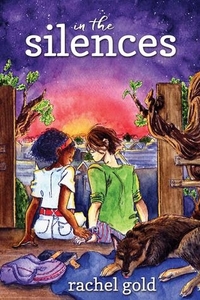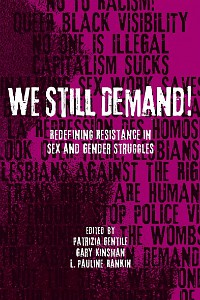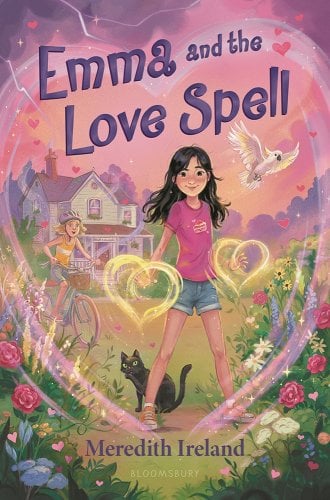Content warnings: Death of a loved one and discussions of historical slavery, racism, and antisemitism.
Despite not reading reviews about Whenever You’re Ready by Rachel Runya Katz, I set my expectations high for this contemporary romance. Estranged childhood friends-to-lovers, a road trip, siblings, grief and healing, a dual timeline, and third person present tense? Maybe I have some specific selling points, but consider me sold.
Since childhood, Jade, Nia, and Michal were an inseparable trio of best friends—until Michal died, and Jade and Nia had a fight. Now, it’s been three years, and Jade and Nia have only spoken in terse text messages. When a letter left by Michal beseeches them to fulfill one of her bucket list items, a Southern Jewish history road trip, they—along with Jade’s twin brother, Jonah, who dated Micah—have to come together to honor her wishes. Thanks to forced proximity, Nia and Jade can no longer ignore the host of complicated feelings between them, whether from their fight, their grief, or years of seemingly unrequited love.
The pacing of this dynamic surprised me. I was expecting to learn about the fight sooner, and for there to be a period of resentment at the start of the road trip. Instead, the fight remains an elephant in the room, even to the reader, who only receives hints about it until much later. Meanwhile, Nia and Jade reconnect through (hilariously real) text messages before the road trip even starts, and there is clearly caring and familiar banter present between the two of them as well as Jonah, meaning they start the trip off with an overall fond dynamic.
At first, the pacing of the setup threw me off, and I was wondering if there would be enough tension to carry us through the rest of the trip. I did not need to worry on this front. Though this book is not long, about 300 pages, I found myself taking my time with it, as there were a lot of heavy feelings explored throughout both the past and present. The tension is palpable in quiet moments that stretch under the weight of intense pining, as well as not only Micah’s absence, but her presence. Her personality sparks off the very first page, and she feels as much of a developed and important part of this book as the living characters.
To add to these complexities, the road trip itself is not a light-hearted romp. Nia is multiracial, while Jade and Jonah are biracial and Jewish, and their trip confronts them with historical antisemitism, racism, and slavery—including from their own ancestors. Jade and Jonah cope with these revelations differently, causing some resentment between them. I appreciated this multifaceted approach, with the characters each having their own reactions to the thorny intersections of discrimination. While these topics come up in specific chapters, the effect they have on the characters remains present throughout, and this thread was drawn from the author’s own experiences.
Though I came to this book for the romance and important discussions, Micah’s part of the story made me the most sentimental. I really appreciated how this book portrays grief as something that can almost freeze a person’s life in time. Jade, for instance, had not yet dropped out of grad school when Micah died, and so Micah’s letters to her are written as if she’d graduated. At the same time, life doesn’t stop, and Jade, Nia, and Jonah all have to keep living moment to moment, dealing with the fact that Micah can’t experience those moments with them. Regardless, her impact on them never fades, and the love between the four is depicted as something warm and eternal.
The theme that love is worth grief ties back to the main romance as well. With friends-to-lovers romances, the characters already have established affection, trust, and banter, and an expected obstacle is that the characters don’t want to risk disrupting that status quo. The characters being sapphic—lesbian in Jade’s case and bi in Nia’s case—adds a layer to that, as they came into their queerness at different ages and in their own ways. Their relationships with Micah and Jonah add additional layers, as there are more dynamics to potentially disrupt, especially when it comes to Micah’s terminal illness and death, and Nia and Jade’s subsequent fallout. If the characters are going to take that leap into acknowledging their romantic feelings, they have to take the risk of losing each other all over again.
I’ve seen people argue that contemporary romances that include serious topics and many kinds of relationships feel more like literary fiction, but this book definitely reads to me as a romance, with plenty of pining, unresolved and resolved sexual tension, and the promised happy ending. I’m still conflicted about if it was necessary to withhold the nature of Jade and Nia’s fight; it’s harder to connect to a situation you’re left in the dark about, but on the other hand, because this book has a past timeline that unfolds chronologically, it makes sense to wait until the reader can watch it all play out. Also, though Jade and Nia’s characters felt distinct in their approaches to life, I sometimes lost track of whose PoV we were in until there was a thirsty description of one of the characters, and I had to back up and check that they weren’t describing themselves that way (admittedly a funny way to catch up).
I recommend this book if you’re seeking catharsis from a layered story with love written on every page.




Leave a Reply